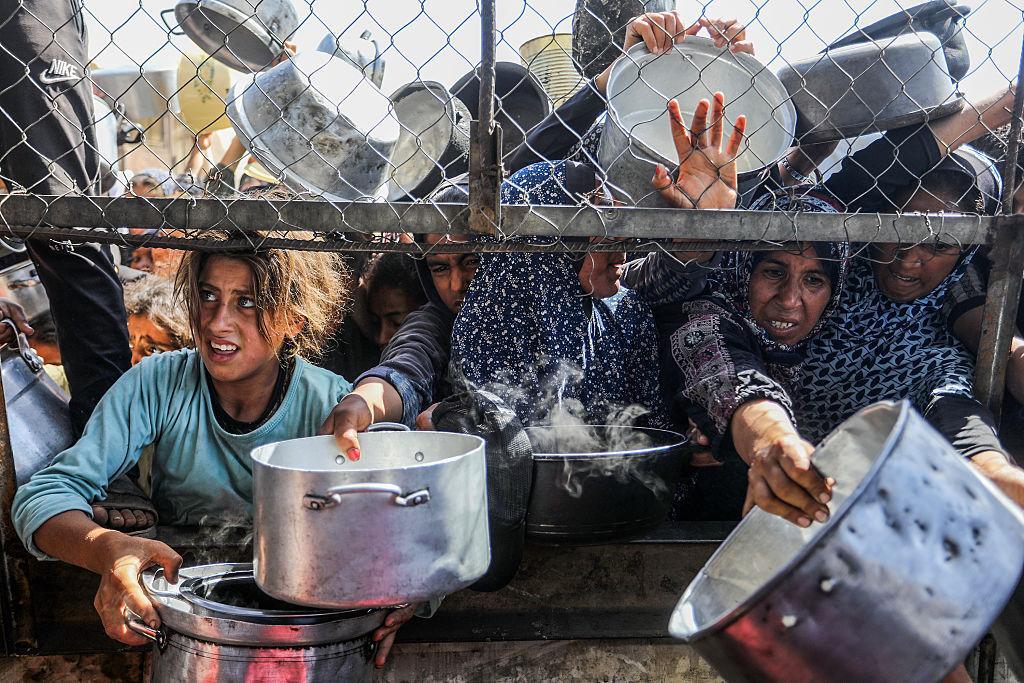
Eid in Gaza: Prayer Amid Ruins, Hunger, and Growing Humanitarian Crisis
As the sun rose over the battered streets of Gaza on June 6, 2025, Palestinians gathered for Eid al-Adha prayers in open spaces, a stark contrast to the destroyed mosques that once served as sacred spaces for worship. The sacred festival, which marks the willingness of the Prophet Ibrahim (Abraham) to sacrifice his son Ismail (Ishmael) as an act of obedience to God, took on a poignant significance in the face of devastation and humanitarian crisis.
The ongoing conflict in Gaza has left a trail of destruction in its wake, with over 54,000 lives lost and widespread displacement. The United Nations estimates that nearly 500,000 people in Gaza are at risk of famine, with food scarcity worsening by the day. Despite the dire circumstances, Palestinians in Gaza continued to hold on to their faith, gathering in the open spaces to perform the Eid prayers, a testament to their resilience and determination to preserve their traditions.
The scene was one of stark contrast – on the one hand, the destruction of homes, infrastructure, and sacred spaces, and on the other, the resilience and faith of the Palestinian people. As the imams led the prayers, the faithful knelt in prayer, their voices rising above the ruins, a powerful reminder of the enduring power of faith.
The Eid celebrations in Gaza took place against the backdrop of a growing humanitarian crisis. The United Nations has warned of an impending famine in Gaza, with the Food and Agriculture Organization (FAO) estimating that 87% of the population is food-insecure. The situation is dire, with many families struggling to access basic necessities such as food, water, and medicine.
The humanitarian crisis in Gaza is exacerbated by the ongoing blockade imposed by Israel, which has severely limited the movement of people and goods into and out of the territory. The blockade has had a devastating impact on the economy, with many businesses forced to close and unemployment soaring.
Despite the challenges, aid agencies and international organizations have been working tirelessly to provide assistance to those affected by the conflict. The United Nations has launched a flash appeal for $47.5 million to support the humanitarian response in Gaza, with a focus on providing food, shelter, and medical care to those in need.
The situation on the ground is dire, with many families forced to live in makeshift shelters, often without access to basic amenities such as electricity, water, or sanitation. The psychological toll of the conflict is also significant, with many survivors suffering from trauma and stress.
Despite the challenges, the Palestinian people in Gaza remain determined to preserve their traditions and cultural heritage. Eid al-Adha is a significant holiday in Islam, and its celebration is a powerful symbol of resilience and hope in the face of adversity.
As the Eid prayers came to a close, the faithful gathered to share traditional meals, exchange gifts, and reconnect with loved ones. The celebrations were a poignant reminder of the enduring power of faith and community in the face of adversity.
In conclusion, the Eid celebrations in Gaza were a powerful reminder of the resilience and determination of the Palestinian people in the face of devastation and humanitarian crisis. Despite the challenges, the faithful continued to gather for prayer, a testament to their unwavering commitment to their faith and traditions. As the world looks on, it is imperative that we continue to provide support and assistance to those affected by the conflict, and work towards a more just and peaceful future for all.
Source:
https://thecsrjournal.in/eid-al-adha-in-gaza-faith-endures-amid-devastation-and-food-shortages/






